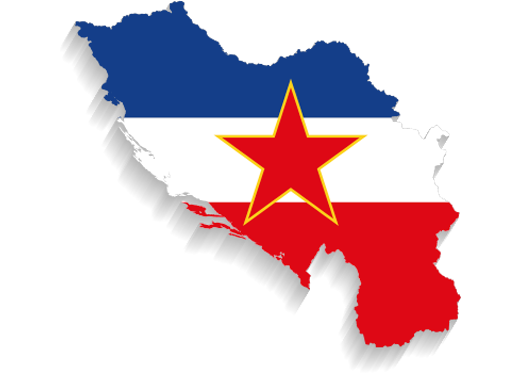(Grant Agreement n. 669194)
Assistant - Federal foreign trade secretariat (1966-1987)
Milica Žiberna worked uninterruptedly as an Assistant to the Federal foreign trade secretariat throughout the 1970s. In this function, she coordinated relations between the ministerial apparatus and the Yugoslav representation to the EEC. Not a mere porte-parole, she had addressed the overall importance of her economic diplomacy mission in a book she co-authored with other colleagues from the Foreign Trade Ministry in 1969 (Evropska ekonomska zajednica i polozaj Jugoslavije [The European Economic Community and Yugoslavia’s stance]) one of the first major publications in the country explicitly dealing with the issue of Western European economic integration. In this book, she underlined Yugoslavia’s dependency on Western European technology and know-how – and the related problems concerning the country’s balance of payments. This book, as explicitly claimed by the authors, was intended to be a guide to enterprises, chambers of commerce and regional banks to better integrate in the Western European economic system and therefore favour the success of the economic reforms launched in 1965. She was a member of the EEC-Yugoslavia Mixed Commission during the 1970s and, as such, was involved in the negotiations of all treaties concluded by the parties during this decade. Overall, she represented a factor of continuity in Yugoslavia’s stance towards the Western European Integration process, working closely with his foreign ministry colleagues in Brussels (in particular Miloš Oprešnik, Petar Miljević Bora Jeftić and Zarko Tomašević) and the Federal Executive Council (particularly Boriš Šnuderl).
|
Petar Miljević was Yugoslavia’s second ambassador to the EEC from 1971 to 1977. He succeeded Miloš Oprešnik, confirming the crucial role played by the Yugoslav embassy in Community Brussels. A permanent member of the Yugosl... |
|
Bora Jeftić was Yugoslavia’s ambassador to the EEC from 1977 to 1981. As such, he was one of the leading actor behind Yugoslavia’s negotiations for the EEC-Yugoslavia Co-operation agreement in 1980. During the turbolent post-1974 p... |
|
From the mid-1960s to the late 1970s, Boris Šnuderl was one of the leading actors of Yugoslavia’s policy towards the Western European economic system. A member of the Yugoslav government from 1971 to 1974, he was responsible for Y... |
|
He was deputy-head of the Yugoslav embassy to the EEC throughout the 1970s, representing a factor of continuity of Yugoslavia’s stance in Community Brussels. Working closely with Miloš Oprešnik, Petar Miljević and Bora Jeft... |
|
A Slovene member of the LCY, banker, businessman and career diplomat, Miloš Oprešnik was appointed as Yugoslavia’s first official representative to the EEC in September 1968. Oprešnik belonged to a generation of poli... |
|
Letter by Boriš Šnuderl to Milica Žiberna
Aj 751 894
In this letter, the Slovene member of the Federal Executive Council, Boriš Šnuderl refers to a recent meeting between Petar Milijević, Yugoslavia's ambassador to the EEC, and a representative of the European Investment Bank. It is argued that Yugoslavia should develop financial relations with the EEC. - Available only in the Archive: http://www.arhivyu.gov.rs/ |
